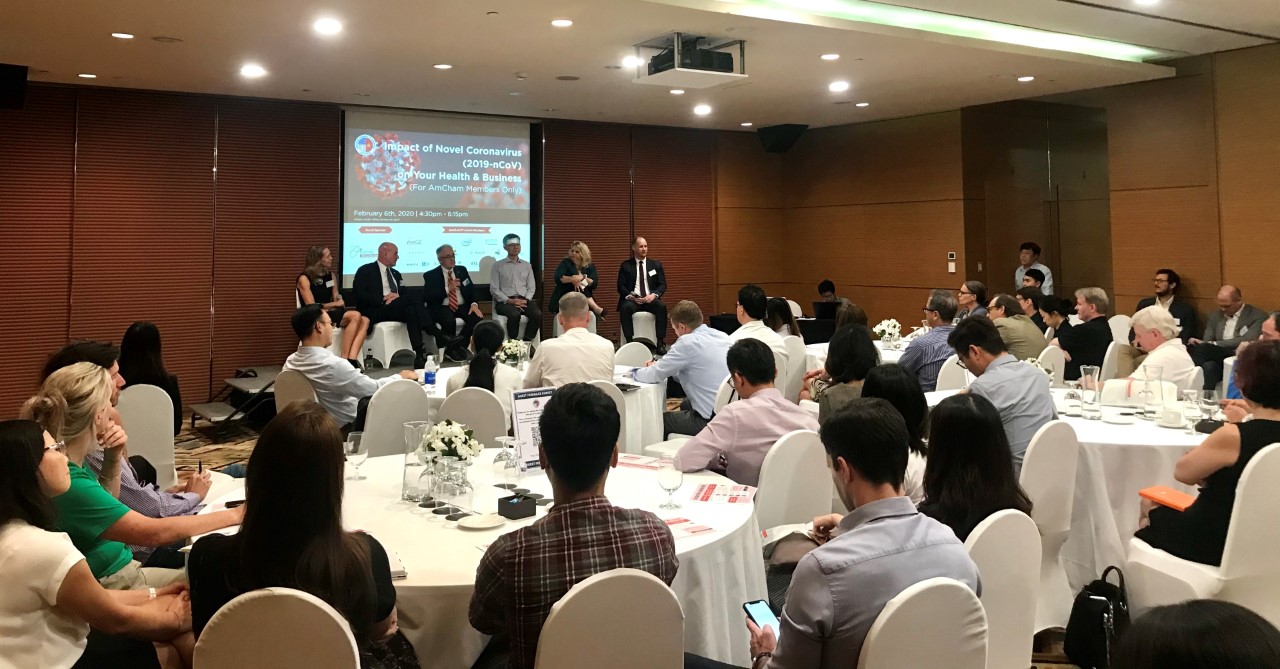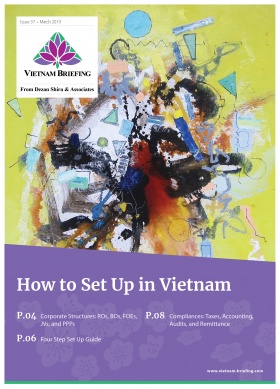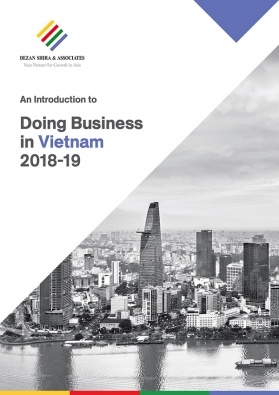Vietnam Coronavirus – The Business Perspective
Overview of the Amcham session “Impact of Coronavirus on Health and Business in Vietnam”
By Trent Davies, International Business Advisory Manager, Dezan Shira & Associates Ho Chi Minh City office
Yesterday evening I spoke at a timely event discussing the Impact of Novel Coronavirus on Health and Business, which was hosted by AmCham Vietnam in Ho Chi Minh City, Vietnam. On the panel I was joined by a number of health and industry leaders; including representatives from the Center for Disease Control (CDC), Victoria Healthcare Systems, Intel, ITL Logistics and Pharmacity among others.
During the event, the panel provided updates on developments of the Coronavirus outbreak, guidance on best practice and the potential impacts on health and the economy in Vietnam. This article will give the most recent updates and opinions arising from the discussion and provide guidance for foreign investors operating in Vietnam.
Coronavirus Update – Vietnam
To date, the novel coronavirus (2019-nCoV) has affected 28 countries, with more than 31,000 individual cases recorded and a death toll of over 600 people. In Vietnam, the total number of reported cases has reached to 12 so far. Three out of these twelve patients diagnosed with 2019-nCoV have been discharged. While the spread of the virus has been rapid, it is noted by health experts that the virus is no more deadly at this time than the common flu.
Further, if we consider that the current 2% fatality rate is only measured as a percentage of the cases known, and not those that aren’t, it is likely that the future fatality rate will be even lower. While the disease may not have the same impact on an individual’s health as other epidemics such as SARS, the impact on the economy and on business will be felt.
Covid-19 Impact on Vietnam’s Economy
Given that China is the world’s 2nd largest economy, the coronavirus outbreak seems certain to have a significant effect on the global economy for at least a quarter or two. The impact of SARS in 2003 was estimated to be a global economic loss of US$40 billion, and at that time China was only the world’s 7th largest economy. China’s share of GDP has quadrupled since then.
In Vietnam, industries involved in tourism, retail, restaurants, cinemas, sporting events, aviation, education, manufacturing, and supply chain are likely to have some negative impact, and in Q1 especially, with effects lingering throughout the year. The Vietnamese tourism industry will be hit particularly hard. China is the world’s largest market for outbound travel, and in Vietnam hotels and tourism operators have already lost significant amounts of revenue since travel restrictions were imposed.
New hotel and resorts projects by large investment funds and developers are being put on hold, as many Chinese laborers are not permitted to re-enter Vietnam. The cash burn rates on these projects will hurt investors the longer they are on hold.
Coronavirus Impact on Vietnamese Manufacturing
In the Vietnamese industrial sector, major concerns of our clients in Vietnam are labor shortages, and disruptions to supply chains. Labor shortages in China are being caused due to the extension of the Lunar New Year holiday, travel restrictions and city lockdowns. If the factories stop production for an extended period it impacts supply chains and the flow of materials. This will soon start to impact the supply chain in Vietnam, regardless of the number of cases in the country. It is the China end of the supply chain that is drying up.
Businesses in Vietnam will likely face problems with Chinese suppliers. If your Vietnamese business is sourcing from China, we strongly recommend frank discussions with your suppliers over the situation. Our China Briefing Coronavirus Update contains details concerning outbreaks and regulatory closures across the many cities and provinces in China. Some are expected to re-open factory facilities from this Monday, 9th February, others will remain in lockdown. If you are unsure about the situation in China and what your China supplier can deliver, please contact us at vietnam@dezshira.com and we will liaise with our China colleagues to get you the latest updates on China’s factory re-openings.
It is also a good idea, if supplies to you in Vietnam are under threat or look as if they could be, that you examine the Force Majeure clauses in your China manufacturing contract to see where you stand, and what actions you should take. We wrote about this in the article: Coronavirus in China: Applicability Of Force Majeure In Contract Disputes. Contact us if you need assistance with the China end of handling Force Majeure.
How Can I Minimize the Impact on My Vietnam Business?
We recommend now is an ideal time to conduct a health check on your business to assess potential risks and impacts. If you don’t have Business Continuity Plans already in place or updated it is very important that you consider any potential changes in the current situation and be prepared in the event the situation worsens.
We advise our clients to carefully assess their risk exposure in-depth; this may involve communicating closely with suppliers or customers, assessing stock levels and supply chains, examining financials such as cash flow and accounts receivables and managing human resources. Global businesses need to stay on top of the viability of receiving and sending shipments, this may mean identifying new suppliers or revising sales forecasts.
How Should I Manage My Vietnamese HR?
It is important for investors in Vietnam to be prepared should the outbreak worsen. This includes having a thorough understanding of employee and employer rights and being prepared to be understaffed. The immediate impact will be the possibility of staff being unable to return to work, or choosing to work from home.
In Vietnam, given the school closures, employers need to be much more flexible for staff with children. Companies can help to prevent the spread of the disease by promoting hygienic information, such as the regular washing of hands, and the disabling of machinery such as fingerprint scanners at this time.
We encourage companies to consider remote working solutions for staff. Internally, at Dezan Shira & Associates, we use many cloud-based software programs to enable people to be flexible, and we advise that companies consider their own systems and implement software as necessary. If you need assistance with developing this, our IT staff can help you build such a platform. Email us at vietnam@dezshira.com
Should I still proceed with my investment projects in Vietnam?
With just 12 confirmed cases in the country to date, from a population of 97 million, we don’t see any reason for investors to halt projects or business establishment in Vietnam. During this period many necessary steps for investment can be handled from firms such as ours, who remain on the ground. Investors can keep up to date with business developments in Vietnam, via our Vietnam Briefing portal. Complimentary subscriptions can be obtained here.
About Us
Trent Davies is the International Business Advisory Services Manager for Dezan Shira & Associates in Ho Chi Minh City. The firm advises foreign investors into Vietnam, opening its first office 13 years ago. The practice now has offices in Hanoi, Da Nang and Ho Chi Minh City and is one of the largest foreign-invested practices in the country. Please email us at vietnam@dezshira.com or visit us at www.dezshira.com
- Previous Article Vietnam’s Competitive Minimum Wages: How Does it Fare with its Regional Peers?
- Next Article Vietnam Manufacturers Facing Shortage of Chinese-Made Components: Contingency Plans








